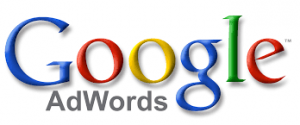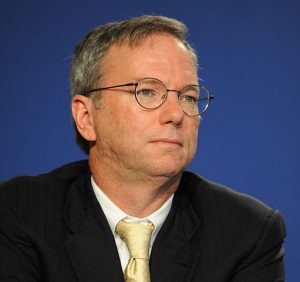Almost twenty years ago, in The Control Revolution, Andrew Shapiro outlined two potential paths that the Internet could take. The first was a more positive tale of an “increased individual freedom.” However, the second had a more cautionary tone. It warned of institutions harnessing the power of the network and exerting their influence over us as consumers.

By Paul Downey via Wikimedia Commons
Aleks Krotoski in The Virtual Revolution, The Cost of Free, broadcast by BBC 2, reports on the development of the World Wide Web in the last twenty years and mirrors this cautionary tone. Users access vast, incalculable amounts of information on a daily basis, and the majority of us take this great ‘commodity’ for granted. Countless hours on Google, Facebook, Twitter…… Krotoski argues that there is a heavy price to pay for these interactions. Douglas Rushkoff, author of Life Inc., states: “The product on line is not the content. The product on line is you.”
When Tim Berners-Lee invented the World Wide Web in 1989 he saw it as an open forum, without boundaries, where information could be shared freely. Stephen Fry, in Krotoski’s The Cost of Free, furthers this notion, saying: “It seemed like a new democracy, of people coming together.”

By Marco Raaphorst from The Hague via Wikimedia Commons
However, in 1994, the United States congress lifted the injunction on Web Commerce, and change came about rapidly. Change that was to affect us all deeply. That free content that is available to us on tap? We receive it due to our willingness to sign away our personal data. All those minutiae that may be seen as having little value in the moment are, in fact, priceless. The surveillance that we are constantly under is the price we pay for the ‘free’ services we access on an almost constant basis. Our personal information is that which is being traded.
AdWords is the model implemented by Google whereby advertisers are enabled to target and filter their audience. Google have become the most powerful company in the world simply by using our search preferences and refining their advertising models.

What Google deems us to be interested, this is what we find in our searches. A barrier has been erected towards the discovery of new things. Krotoski proposes that this system denies us the very ‘serendipity’ that the web originally offered. As the algorithm gets to ‘know’ us more, we are cutting off and marginalizing our options and confining them in the direction Google wants us to take. Eric Schmidt, CEO of Google, in an attempt to put a jaunty, positive spin on the process, utilizes a neat turn of phrase to describe it: “It’s not a broadcast mechanism. It’s a narrowcast mechanism.”

By Guillaume Paumier via Wikimedia Commons
It could be argued that ultimately the use of targeted advertising will lead to the de-personalisation and homogeneity of the audience and consumer. There are implications looking to the future as to how we will identify ourselves, but we must also look at and consider the vast reserve of information that is being stored indefinitely, where it is being held and who has access. And how could it potentially be used?
References
The Cost of Free. The Virtual Revolution. Dir. Dan Kendall. BBC, 2010.
Lessig, Lawrence. The Future of Ideas. Random House, 2001.
